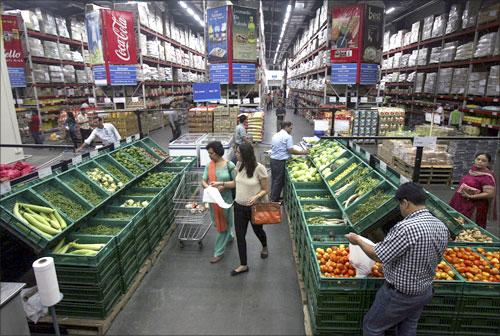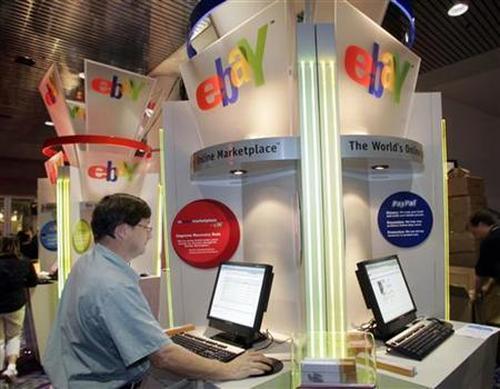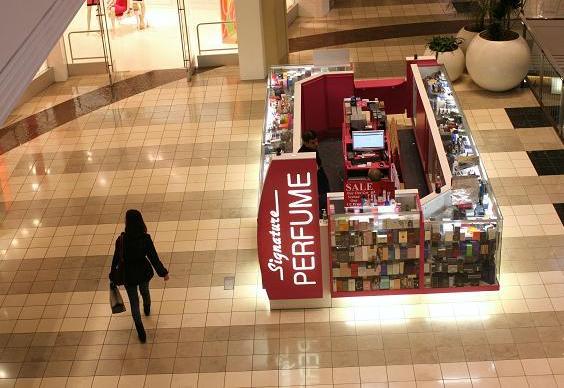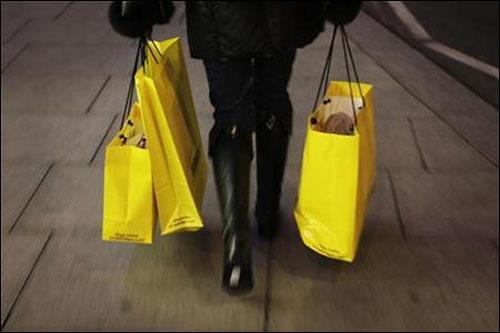 | « Back to article | Print this article |
Multi-brand retail FDI policy riders might be eased
Under pressure from international retailers, the government might soon amend the foreign direct investment policy on multi-brand retail trading by easing some conditions which had drawn sharp criticism from global investors.
However, there is no proposal to hike the FDI limit in the sector from 51 per cent.
The department of industrial policy and promotion, nodal agency for FDI policy under the ministry of commerce and industry, seems to have prepared a note for the Cabinet Committee of Economic Affairs to consider.
It would mean changes in the FDI policy approved in September.
Click NEXT to read further. . .
Multi-brand retail FDI policy riders might be eased
The government will seek to change three main conditions that have invited the most criticism by retail conglomerates such as Walmart, Tesco and Carrefour.
This pertains to the riders concerning back-end infrastructure, mandatory sourcing and establishment of retail stores only in cities having more than a million population.
The move comes at a time when the economic scenario is gloomy, with the rupee at an all-time low and investment sentiment depressed.
It was only last month that DIPP had issued a set of clarifications on these issues but this failed to soothe retailers’ nerves.
On back-end infrastructure, the government is planning to highlight the condition of creating ‘additional’ infrastructure.
Click NEXT to read further. . .
Multi-brand retail FDI policy riders might be eased
A senior official told Business Standard the main reason why government opened the sector to FDI was ‘only’ to create additional and state-of-art back-end infrastructure such as cold chains and storage facilities.
For, the ‘present back-end facilities are not enough and the existing players will get an easy exit route if foreign retailers buy them out, leading to a real estate business of sorts.’
According to extant policy, “At least 50 per cent of total FDI brought in shall be invested in back-end infrastructure within three years of the first tranche of FDI.”
It does not specify whether such an investment will be in existing infrastructure or new ones.
The clarifications issued later said even front-end investment must go in creating new facilities.
It seems the policy on 30 per cent mandatory procurement from MSMEs is also set to change.
Click NEXT to read further. . .
Multi-brand retail FDI policy riders might be eased
It says this much procurement of processed products should be from domestic small industries with investment of not more than $1 million in plant and machinery.
The government might relax this to say once the 30 per cent threshold is met, the retailer can source from the same supplier, even if the investment in P&M exceeds $1 million, keeping in mind quality consistency.
The government is also set to change the rider that retailers can set up their outlets in only cities with more than one million population.
In the past two months, commerce and industry minister Anand Sharma met Walmart Asia chief executive Scott Price twice. Recently, during their visit to the US, both Sharma and finance minister P Chidambaram had to face questions at the India-US CEOs Forum.
Click NEXT to read further. . .
Multi-brand retail FDI policy riders might be eased
Ever since 51 per cent FDI has been allowed in MBRT, not a single proposal has come to the government.
However, before FDI in the sector was allowed, retail juggernauts such as Walmart, Tesco, Metro and others had all expressed interest in India.
RETAIL OFFERS
- FDI policy in multibrand retail likely to change
- No change in FDI limit on cards; cap to remain 51 per cent
- DIPP to soon move CCEA on this; note being finalized
- Government to ease the stiff conditions
- For back-end infra, the new policy might now clearly specify that investments have to be made in creating new facilities, as existing infra is not sufficient, leading to wastage
- New policy might also relax sourcing conditions
- Retailers might be allowed to open stores in cities with a population of less than one million population





